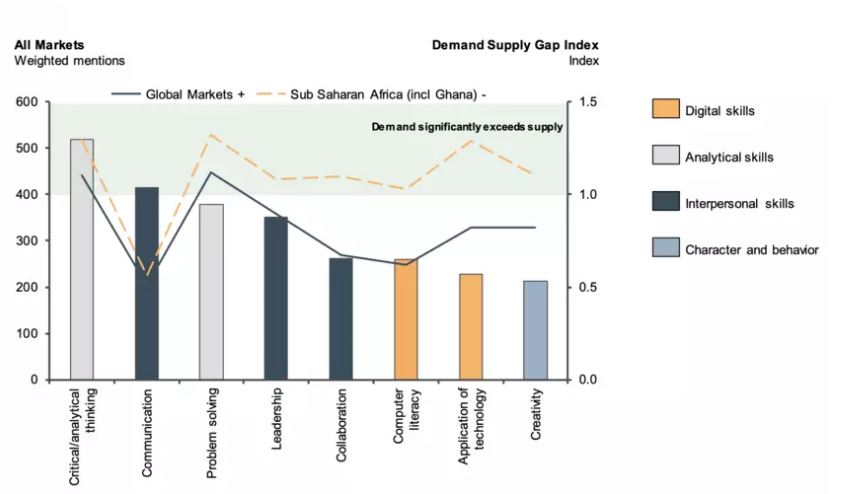The Role of Tertiary Institutions in Africa’s Preparation for the Next Tech Wave

As Africa continues to align itself with the global tech trend, the continent’s tech space continues to surge. New techs have always disrupted old ones. Globally, technology has always progressed in “tech waves,” which signal the widespread dissemination and adoption of new ideas. Manufacturing, for example, was the main technological wave throughout the 18th century’s Industrial Revolution. Africa’s tech sector, too, has risen through multiple waves to reach its current heights.
When tech innovations become a trend and well-funded in their era, they become waves. Tech growth has contributed to major changes to workplaces. The demand for digital skills in Africa continues to surge. In the coming years, jobs that before did not need digital skills will begin to do so. Unfortunately, Africa is not doing enough to deal with its tech talent problem.
African startups complain of not finding quality software developers or tech talents. According to a 2020 Ernst and Young report, the quality and volume of talent in Nigeria is limited and insufficient. The report disclosed that attracting and retaining quality talent in data analytics, cybersecurity, and software engineering remains one of the biggest challenges faced by fintech startups in Nigeria.
With the likes of Semicolon Africa, Gebeya, Talent QL, Utiva and Moringa School working to bridge the tech talent gap in Africa, Education providers need to align their offerings to accommodate this surge in tech demand in work places.
Digital Skills Demand in Africa
IFC and the World Bank (through the Digital Development Program Trust Fund) conducted new research on the markets of Cote d’Ivoire, Kenya, Mozambique, Nigeria, and Rwanda to gain a better understanding of how to improve these skills while ensuring that the infrastructure is in place for people to develop them. According to preliminary projections, 50-55 percent of occupations in Kenya will require some level of digital skills by 2030, 35-45 percent in Cote d’Ivoire, Nigeria, and Rwanda, and 20-25 percent in Mozambique.

Demand for digital skills far outstrips supply in Sub-Saharan Africa
By 2030, these five countries will have 57 million occupations that demand digital skills. Only around two million of these positions will be in the ICT and e-commerce sectors, which are usually seen to be the key demand generators. This has significant consequences for the types of training that populations require, as well as how it might be given. As more businesses adopt digital technology across a wide range of industries, most of the demand for digital skills will come from generic vocations rather than narrowly defined ICT professions.
The Next Tech Wave and Tertiary Institutions
Tertiary institutions may become the greatest tool to bridge the talent gap in Africa. The power of strong universities to improve a nation is akin to the power of a strong university education to improve an individual life.
African tertiary institutions have a problem. According to Quartz Africa, the current pattern of skills production in Africa does not match labor market demand or development needs. The system is also characterized with a shortage of skilled workers in many fields such as science, mathematics, technology engineering. Fields which are considered necessary for the next tech wave.
Higher institutions in the region will need to modify its ICT and engineering courses. This is to keep up with evolving technology in order to meet this expanding demand. Rapid skilling programs should be implemented to accommodate spikes in demand for specific needs.
Bridging the digital talent gap in Africa through tertiary institutions will also require the involvement of government and agencies. Africa’s power and internet problem poses a threat to implementation of programmes and policies to fix the tech talent deficiency.
With only 35% of Nigerian schools linked to a power supply (and that supply being unpredictable), it would be critical to upgrade the power infrastructure in order for networks to operate at optimal levels.
In Cote d’Ivoire and Rwanda, inadequate internet access is a problem; less than half their populations have access to broadband.
The ability to scale up the output of tech savvy graduates will have a big impact on the continent’s growth. The next wave is almost here; tertiary institutions can actively help in cultivating the mindset needed to benefit from it.
